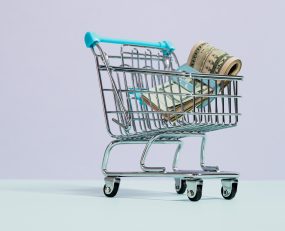
Created by the Chinese e-commerce giant Alibaba, Single’s Day – also known as 11.11 or Double 11 – was positioned as the opposite of Valentine’s Day – with more spending. What started out with just 27 merchants in 2009 has eventually exploded into 350,000 local and international brands participating in an unrivalled shopping festival that included an online performance by Katy Perry this year and the launch of a clothing collection from Taylor Swift, last year’s headline performer. This year’s event included an earlier 3-day period from November 1 to 3, in addition to the main day November 11, in which it has even been offering around 800,000 properties along with 200,000 cars.
With globally unprecedented sales, the delivery of those orders, worth $56.4bn as of 12:30am Beijing time on Wednesday (November 11), require efficient and reliable logistical infrastructure[2]. Alibaba’s own logistics arm, Cainiao stated that it would be using more than 3,000 chartered flights as well as long-haul cargo ships to transport goods into China and prepare for sale. Around 3m people from Cainiao and partners will be involved in the impressive logistics dance globally in warehouses and ports. To increase delivery capabilities and reduce COVID risks, the company will also make use of more than 10,000 lockers that allow pick up, removing the need for human interaction completely. For international consumers, Cainiao readied more than 700 chartered flights to delivery outside of China.
“The use of cutting-edge technologies such as artificial intelligence, predictive algorithms and big data analytics will empower merchants with demand forecast data and allow them to accurately pre-stock their goods in the right quantity and location,” said James Zhao, general manager of global supply chain at Cainiao.
Last year’s popular product categories were pet food, health and beauty products. This year, health and beauty are still expected to perform well, with additions of sports apparel, robot cleaners, vacuums and toolboxes. Considering the Chinese market an important market, foreign consumer brands that struggle with poor results elsewhere, view Single’s Day as a great opportunity. L’Oréal being of those. According to Trefor Moss, a WSJ business reporter; he says that while its global sales were down around 2%, they grew by approximately 28% in China. Bloomberg reported that during the first 111 minutes of sales on November 1, Nike and Apple were among 100 brands that reported around $15m in transactions, while Estee Lauder was the first to surpass ¥1bn. And with limited travel opportunities, imported goods are expected to perform well with the Chinese consumer, for what is being dubbed as “revenge spending”; for the first time, Tmall, Alibaba’s B2C shopping platform, has included more than 2,600 new overseas brands.
Not untouched by on-goings of the world, this Single’s Day was also the first since the exit of its founder Jack Ma. A week earlier, Ant Group’s IPO, back by Ma and a company in which Alibaba has a big stake in, had been struck down by Chinese authorities, shutting down what would have been the biggest stock market debut to date. Other news came from the regulatory side looking to curtail the growing influence of monopolies in the sector with new antitrust laws, causing Alibaba shares to plunge 9.8% in Hong Kong on Wednesday, and JD.com noting a similar drop of 9.2%. While the announcement did not mention any wrongdoing of the companies, it cited “areas where regulators might look for problems including sharing of information and alliances or pricing services below cost to keep out new competitors”.
The event has become indicative of the health of the Chinese consumer economy. China had already reported two quarters in a row of positive economic growth, highlighting a rapid recovery after initial and major COVID-19 outbreaks earlier in the year. In order to secure further growth in e-commerce, the two biggest players Alibaba and JD.com also started reaching out more into the so-called lower tier Chinese cities, which have lower penetration rates and spending is typically lower, however they regard these regions to be key to maintain momentum. During such turbulent times, while some economies have suffered serious blows, Chinese consumers have seemingly been welcoming the opportunity to celebrate their “singlehood” (though couples are not turned away) and thus provided some much-needed revenue-generating days.
Source: Transport Intelligence, November 12, 2020
Author: Dila Cebeci